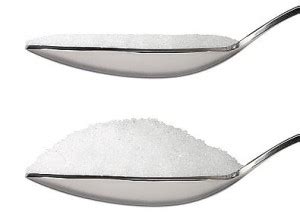The amount of calories in 1 teaspoon of sugar depends on the type of sugar being referred to. Generally, when people talk about "sugar," they're usually referring to granulated sugar, also known as white sugar or table sugar. However, there are many types of sugar, including brown sugar, confectioner's sugar, and others, each with slightly different calorie contents due to differences in moisture and density.
Granulated Sugar (White Sugar):
1 teaspoon of granulated sugar is approximately 4 grams.
According to the United States Department of Agriculture (USDA), 1 teaspoon (tsp) or 4 grams of granulated sugar contains about 16 calories.
Brown Sugar:
Brown sugar is slightly more dense than white sugar, so a teaspoon of brown sugar might weigh a bit more. Generally, brown sugar is considered to be about 0.5 grams heavier than white sugar for the same volume measurement. However, this doesn't significantly affect the calorie count for small quantities like a teaspoon.
Assuming the same 4 grams per teaspoon, brown sugar would also contain approximately 16 calories per teaspoon.
Confectioner's Sugar (Powdered Sugar):
Confectioner's sugar, also known as powdered sugar, is a finer, powdered form of sugar. Its weight per teaspoon is less than granulated sugar due to the way it's processed. While it's not a 1:1 substitution in recipes, in terms of calorie content, it's roughly the same as granulated sugar for the same weight (4 grams = 16 calories).
Other Types of Sugar:
Other sugars like turbinado, demerara, or muscovado have slightly different calorie counts per teaspoon, primarily due to variations in moisture content and the type of molasses they contain. However, these differences are minimal for most practical purposes, and their calorie content per teaspoon will be very close to that of granulated sugar.
In Summary:
- Granulated Sugar: About 16 calories per teaspoon (4 grams).
- Brown Sugar: Approximately 16 calories per teaspoon.
- Confectioner's Sugar: Roughly 16 calories per teaspoon (for the same 4 grams).
It's worth noting that while these values are approximate and can vary slightly depending on the specific type of sugar, the differences are generally not significant in the context of everyday dietary considerations.
